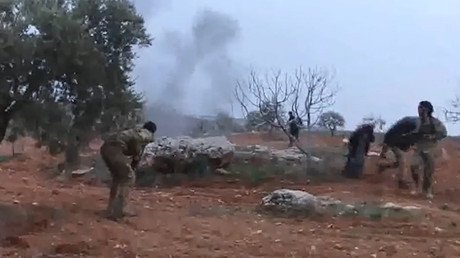Assange lawyer brings up claim US mulled ‘kidnapping and poisoning’ of publisher – here’s what we know
The US government plotted to kidnap or kill Julian Assange while he was holed up at the Ecuadorian embassy in London, a UK court was told yesterday during the WikiLeaks publisher’s extradition hearing. What do we know so far?
Assange’s lawyer Edward Fitzgerald told Judge Vanessa Baraitser that the US wanted to make the WikiLeaks founder’s death look like an accident and that US intelligence agencies worked with Spanish company UC Global to extensively spy on Assange inside the embassy.
‘Extreme measures considered’
Fitzgerald claimed that recordings were collected every 14 days and handed over to US intelligence services. The surveillance even included footage of Assange meeting with his legal team, breaching attorney-client privilege, he said.
“There were conversations about whether there should be more extreme measures contemplated, such as kidnapping or poisoning Assange in the embassy,” Fitzgerald told the court.
Assange's lawyers have long-warned that kidnapping or extraordinary rendition could be on the table for Washington if the US could not get to him any other way.
Witness #2 will testify that: “extreme measures” such as kidnapping or poisoning Assange were discussed among personnel involved in the espionage operation
— WikiLeaks (@wikileaks) February 24, 2020
The source of the claim heard in court on Monday is a whistleblower known only as ‘witness two’, responsible for exposing UC Global owner David Morales and his role in the surveillance operation for “the dark side” — meaning the US government. The witness described the Americans as “desperate.”
One suggestion was that the embassy door could be left open, which could make a kidnapping look like an “accident.” There wasn’t as much information given about the poisoning claim.
‘Kidnapping’ plan?
This was not the first time claims had been made that the US considered such extreme measures for dealing with Assange.
In a 2019 presentation on the technical aspects of the surveillance operation, German hacker Andy Muller-Maguhn, who had visited Assange inside the embassy, claimed that kidnapping and poisoning were options for the US government and that all doors and windows in the embassy were documented so various options could be explored.
The surveillance was so intense that bugs were even implanted in a fire extinguisher and in a bathroom that Assange used, he said.
Kidnapping and poisoning was considered to get to Assange. All the doors and windows were documented so that all options could be explored if they went ahead. #36c3pic.twitter.com/UaNedxSuCV
— Jared Naude (@JaredNaude) December 30, 2019
Last October, during a hearing to request a delay to February’s extradition, Assange’s legal team also argued that the US had tried to “kidnap and harm” the journalist. Mark Summers QC also brought up the fact that the US had been “intruding” on conversations between him and his lawyers, but Judge Baraitser denied the request for more time.
‘They might shoot you’
The threat of death has likely not been far from Assange’s mind since he launched WikiLeaks back in 2006.
Last year, his father John Shipton revealed that he warned his son that he could be killed for his work.
“You want to be careful because they might shoot you, or push you off a bridge,” Shipton recalls telling him.
Assange was dragged from London’s Ecuadorian embassy in April 2019 and has been kept at the maximum-security Belmarsh Prison since. He had spent seven years inside the embassy, fearing extradition to the US, after skipping bail in relation to a Swedish sexual assault case which his lawyers say was politically motivated and was later dropped.
His long-awaited US extradition hearing will continue on Wednesday at 10am when the defense and prosecution will examine the details of a 2003 UK-US extradition treaty.
Like this story? Share it with a friend!














